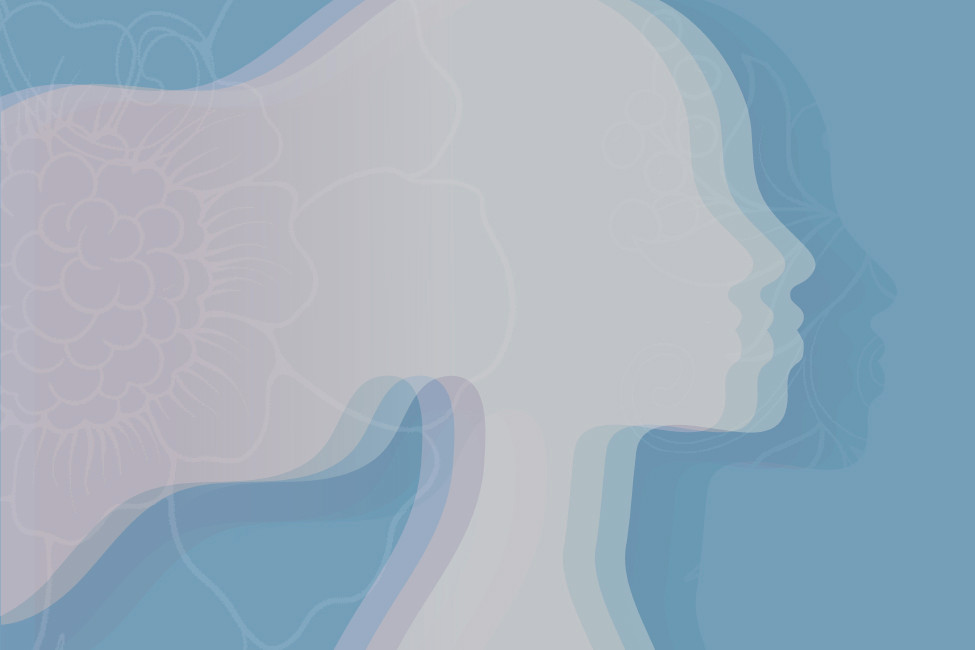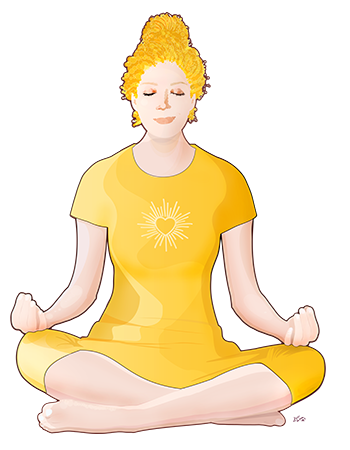Mom's Guide to Self-Care: Support Mental Health to Create Total Wellness

Our mental health experts — Melanie McLeain, Rachel Sparks and Natalie Bland — all emphasized the connection between self-care and mental health.
We’ve got good news for moms: we’re halfway there. We’re already pros at caring for others. If our kid needs comfort, we know just the song. If they’re covered with mud, we’ve got bubbles for bath time. If they are bouncing off the walls, we know which park will do the trick. All day, we make sure bellies are full, necks are hugged, appointments are made and homework is understood. But Bland, a Licensed Clinical Social Worker, said that 78% of women report putting off their own care.
So, where’s the disconnect?
Why is caring for ourselves so hard?
1. We let guilt creep in.
Sparks, a women's director for Kanakuk Kamps, pinpoints a major roadblock for many moms with a beautiful reminder to shift our perspective. “We teach our children habits like washing their hands to protect their health. What if we viewed self-care in the same way? If we can make it a healthy habit rather than a guilty indulgence, we’re much more likely to stay happy, healthy and dependable for our kids.” In fact, we should celebrate chances for self-care as an “excellent opportunity to be healthy models for our children,” says Bland.
2. We ignore emotional hunger.
Just as we encourage hand washing for our kids, we also give our kids healthy food when they need a meal or a snack. As a clinical therapist, McLeain takes the concept of hunger to another level. “Too many in our society have been brought up to ignore the sensations of emotional hunger, and keep pouring out, regardless of depleted condition,” she says. There’s a risk with this behavior: burnout. “Human beings can only pour out so much before they become empty,” McLeain shares.
3. We don’t know what self-care is.
At its core, self-care is anything that brings us joy. We have to know ourselves enough to know what will replenish us on the other end. Bland warns if our self-care goals become checklist items, then that's not self-care. On the other hand, self-care is intentional. McLeain notes that true self-care takes both initiative to know when you are in need and action to seek your own care.
Help for Moms in an Anxious World
“My form of self-care might be
anxiety meds in the next few weeks,
if I’m being totally transparent.”
In the midst of mom-sourcing self-care tips for this issue, my friend’s message stood out. Her vulnerability and honesty struck me as a wonderful example of what Mental Health Awareness Month spotlights each May.
Awareness may sound a little buzzwordy, but in practice, it’s a beautiful thing. It sounds like an open conversation over coffee. It feels like a hug while dropping off a meal. It looks like making your first appointment with a counselor or therapist.
We also celebrate Mother’s Day in May. My love for this day goes beyond handwritten cards and macaroni necklaces from my two sweet boys. It’s a reminder to champion fellow moms in the thick of it and to honor mentors who have paved the way.
I found May’s focus on both mental health and mothers especially timely this year. Moms who’ve never experienced mental health issues may need help now. Many parents have had to adjust schedules, expectations, working situations and responsibilities during this season — a time of social distancing marked by increased stress, psychological strain and even trauma.
To give our readers helpful guidelines while navigating new waters, we chatted with women who are social workers, counselors, moms and women’s directors.
Melanie McLeain, LMSW, is a clinical therapist with Behavioral Health Services of Arkansas. Rachel Sparks, mother of three, has dedicated her life to girls, families and women as the women’s director of the Kanakuk Kamps K-Kountry, and Natalie Bland, LCSW and mother of two, works as a mobile assessment coordinator of The BridgeWay in North Little Rock.
We asked our most pressing questions on mom’s mental health, and we’re excited to share their insight with you.
1. What are the most common mental health issues moms face?
Our experts agree that anxiety is the top mental health issue for mothers. Bland adds depression and post-traumatic stress disorder to the list.
2. What’s the difference between stress and anxiety or depression?
Sparks defines stress as “temporary” (and unfortunately unavoidable at times) as opposed to the deeper, overwhelming pattern of anxiety and depression.
“Depression and anxiety may get in the way of doing everyday activities, like taking care of yourself and your child. They are long-lasting and won’t go away on their own. But they are treatable, which is why it’s crucial to get help,” Bland says.
3. What are warning signs you need help?
First and foremost, McLeain recommends seeking immediate help for any suicidal urges or thoughts. But the idea behind initiatives like Mental Health Awareness is to encourage people to get help before that point. McLeain recommends that a mom ask for help “when she first notices a pattern of feeling overwhelmed or anxious. That’s the time for her to reach out and get therapeutic support, before things get worse.”
Bland also points out other warning signs like feeling depleted, resentful or isolated. “Feelings of sadness, anxiety, worry, irritability or sleep problems are common for most people. However, when these feelings get very intense, last for an extended period and begin to interfere with school, work and relationships, it may be a sign of a mental health problem.”
4. How can friends and family help?
Sparks offers reminder number one: “Someone who struggles with their mental health is on a long journey of healing; there’s no quick fix.” Consistency and patience are key when you’re part of someone’s support system. A lot of what partners, friends and family can do is very practical. Bring a meal. Be an empathetic listener. Offer to babysit. Help them make their first appointment. Ask how you can help lighten the load.
5. What’s not helpful to someone dealing with anxiety or depression?
McLeain offers another reminder: “The most important thing for friends and family to do is to understand that this mom would help herself if she could. No one deliberately chooses to feel anxious or depressed.” Friends and family should avoid adding guilt to someone’s mental health struggles. Avoid phrases like: “Be happy;” “You have so much to be grateful for;” “Think positively!” or even “Trust God.” Instead, focus on empathetic non-judgement like: “That sounds hard.” Anything you can do to show you hear and understand your loved one will be immensely helpful.
Where to Get Help
If you or a friend need help for anxiety, depression, PTSD or more, here’s a list of local and national resources.
Local Resources
► Your primary care physician — This is a great place to start: your PCP can refer you to the right local professional for your situation.
► Behavioral Health Services of Arkansas —This organization offers a variety of therapy options as well as the option to schedule an appointment with a doctor for medication.
► Mom 2 Mom — This local support group offers a relaxed setting for peer support.
► Band of Mothers — This local support group is designed specifically for mothers.
► The BridgeWay — As one of Arkansas’ largest psychiatric hospitals, the facility offers free on-site or mobile assessments.
National Resources
• National Alliance on Mental Illness
• American Foundation for Suicide Prevention
• National Child & Maternal Health Education Program
Mental Health Awareness Month reminds us of the small things we can do year-round to remove stigma around anxiety, depression and more. And at its heart, it empowers each of us to seek and encourage help when needed. I’ve learned from my own circle that mental health can be a matter of life and death.
Mom's Guide to Self-Care
Support Mental and Physical Health to Create Total Wellness
How to use our guide: We collected tips and tricks for major subsections of self-care: mental health, movement, treats, sleep and mindfulness. Explore and be inspired by our guide to start or tweak your own self-care routine.

► Keeping Mom Well: Gray Hair, Self-Care
► Take a Timeout, Make Time to Be Present

